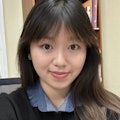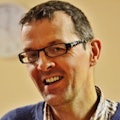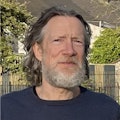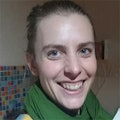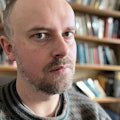Global language based area studies

We study the politics, society, languages and cultures of areas (including Europe, Africa, China, and Latin America), and have an ambitious agenda to rethink ‘area studies’.
We place an emphasis on transnational phenomena, creative and critical thinking, and social science and humanities-led methodologies in addressing the crises of our times.
We aim to
- rethink and ‘decolonise’ area studies
- break down disciplinary barriers
- incorporate innovative and creative research methods
- provide fresh theoretical perspectives.
We focus on
- languages (multilingualism, language learning, linguistics)
- movements (socio-political, intellectual, ideological, industrial, non-governmental)
- (trans)national phenomena such as crisis and culture.
We are building a world-class group of researchers with the creative and critical skills to undertake contextually informed and impactful research. We have research networks and exchanges with academics and practitioners across the globe.
What we do
The School of Modern Languages is a well-established centre of area studies research, above all European Studies, and draws upon disciplinary models that have attracted research support from, among others, the ESRC, the AHRC, the Leverhulme Trust, the British Academy, the Welsh and UK governments.
Our work is interdisciplinary to the core, drawing on social science and humanities-led methodologies and spanning disciplines such as sociolinguistics, sociology, history, ideology, (cultural) politics, critical theory and area studies. We are united by the fact that we all use one or more language, either as a tool of or as an object of research.
Our research impact
Our research engages with or impacts upon societies and cultures, helping us to make sense of our world.
Within Wales, Claire Gorrara is the academic lead for Welsh government-funded project that mobilises mentoring to improve pupils’ attitudes towards modern languages and increase GCSE uptake.
Elin Arfon and Eira Jepson are pursing doctoral studies that take further work on evaluating languages in Welsh schools.
Beyond Wales, our research has impacted on Northern and Southern NGOs (Gordon Cumming), UK prisons (Joey Whitfield), Catalan nationalist movements (Andrew Dowling), French trade unions (Nick Parsons) and the Japanese government (Chris Hood).
PhD research
PhD opportunities are available under the Global Languages-Based Area Studies pathway of the Wales Doctoral Training Programme. We convene this pathway which offers, with support from Cardiff University’s Department of Politics and International Relations, collaborative and open ESRC doctoral studentships.
If your research corresponds with the description and goals of this theme and you would like to pursue your MPhil or PhD studies with us, please see the profiles of our expert staff members and contact our postgraduate research administrator.
Our PhD supervisors
Dr Elaine Chung is pleased to offer supervision in the areas of cultural studies and media studies, with projects on the identity politics of South Korean, mainland Chinese and Hong Kong popular cultures particularly welcomed.
Professor Gordon Cumming works on European, French and British foreign, security and development policies towards Africa. He would welcome PhD applications in these areas and on Non-governmental Development Organisations
Dr Andrew Dowling welcomes proposals on any area of modern Catalan history and politics, nationalism in Spain and theoretical approaches to nationalism.
Dr Heiko Feldner welcomes inquiries on topics related to the history and concept of capitalism, the critique of contemporary ideologies, the German school of value-criticism (Wertkritik), and the contemporary relevance of Marx, Foucault and Žižek.
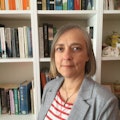
Professor Claire Gorrara
Dean for Research and Innovation for the College of Arts, Humanities and Social Sciences, Professor of French Studies
Professor Claire Gorrara can supervise in areas around histories and memories of the Second World War in France; popular culture and memory politics; graphic novels and history writing.
Dr Alastair Hemmens welcomes applications for supervision on all areas of modern French cultural and intellectual history. His research interests focus in particular on Marxian theory and practice, anti-capitalism and the French avant-garde in the twentieth century.
Dr Christopher Hood offers supervision on a wide range of subjects related to Japan, including the aspects of memorialisation and dark tourism.
Dr Jenny Nelson welcomes enquiries from PhD students interested in the following research areas: nineteenth century Brazilian history, comparative Latin American history, the Lusophone Atlantic, African Diaspora, slavery and its legacies in Latin America and the Caribbean.
Professor Fabio Vighi can supervise research on critical theory, continental philosophy, ideology critique, psychoanalytic theory, contemporary Italian culture and European and World cinema.
Dr Xuan Wang welcomes enquiries broadly related to critical sociolinguistics and applied linguistics, particularly topics that engage with Chinese or transnational China and address any aspects of language, discourse, identity or teaching and learning in relation to cultural changes, digital advancements and social inequality.
Dr Joey Whitfield can supervise topics in Latin American Literary, Film and Cultural Studies, especially topics related to crime, prisons and justice.
Contact us
We engage in seminars, PhD presentations, guest talks, conferences, publications, methods workshops and webinars. Our scholars provide expert media commentary and run prestigious units such as the Žižek Centre (co-hosted by Fabio Vighi and Heiko Feldner).
Should you wish to speak at one of our events or enquire about our research please contact Professor Gordon Cumming.
Our PhD and MPhil opportunities are grouped together under the banner of Languages and Translation Studies.
